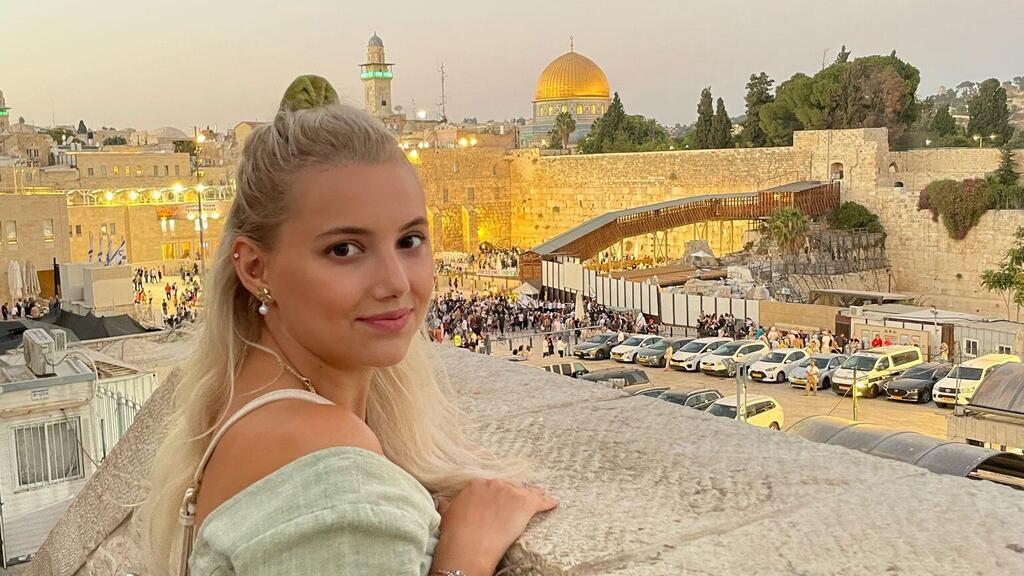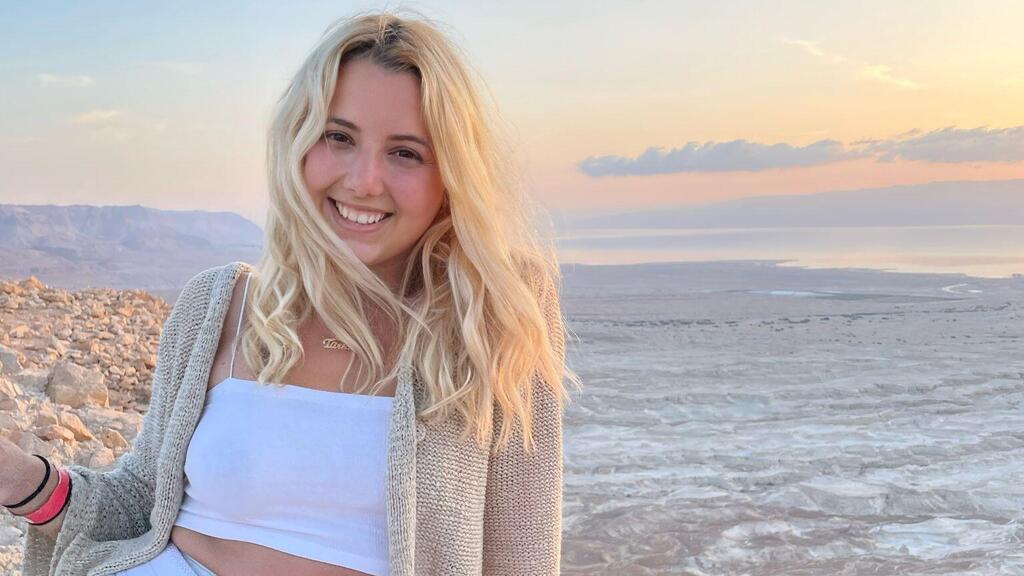Getting your Trinity Audio player ready...
Qatar’s influence on Turkish policy is growing—and turning the country against Israel, says student in Jerusalem
Qatar is influencing Turkish policy against Israel and in favor of the Palestinians, according to a young Turkish student who has been studying in Israel for the past four years.
Turku Avci, 26, arrived in Israel in 2021 to study at the Hebrew University. Last week, she spoke with ILTV in its podcast studio about what brought her here—and how her home country has become increasingly radicalized.
“Qatar has really big investments in Turkey,” Avci explained. “In the last 10 years, they have made billions of dollars in investments in Turkey. You can ask any random guy on the street, what do you think of Qatar? They would tell you: [President Recep Tayyip] Erdoğan sold Turkey to Qatar.”
Turku Avci
(ILTV)
According to Avci, Qatar owns countless properties in Turkey, including banks and TV channels. She said this influx of investment followed a major economic crisis in 2019, when then-U.S. President Donald Trump threatened to "totally destroy and obliterate" the Turkish economy if it took military action in Syria after the U.S. withdrawal.
“Trump said I am going to make your economy collapse and he did,” Avci told ILTV. “The investments from Qatar started at that time.”
While she admits Qatar didn’t save the Turkish economy, it helped stabilize it.
She added that Qatar’s growing influence, combined with Erdoğan’s search for a unifying cause, has turned the Palestinian issue into a “propaganda tool.”
“Erdoğan cannot get investment from Europe or America,” Avci continued. “Canada just warned its citizens not to go to Turkey. We need Qatar.”
In October 2023, the local Hurriyet Daily News reported that Qatari investment in Turkey had exceeded $20 billion. The trade minister said bilateral trade would likely continue to grow under new agreements. He also noted that 220 Qatari companies were active in Turkey, while 727 Turkish companies were operating in Qatar.
Avci said her own journey to Israel began when she wanted to understand the Israeli side of the Arab-Israeli conflict. In 2021, she was finishing her studies at Istanbul University while watching the unrest unfolding in Israel—military operations in Gaza and near civil war in mixed cities.
“I couldn’t believe there was only one side,” she said. So she Googled it. She read more. That led her to Hebrew University.
“I saw how Turkey was becoming radicalized more and more day after day,” Avci recalled. “I grew up in a family, really activists, really involved in politics, and I wanted to do something about it. And Israel was the perfect place to do it, the perfect place to understand the Middle East.”
Her family had Israeli friends who helped her with financial aid and the move. But even before the October 7 massacre and the ongoing war, it wasn’t easy.
“My family got so many comments about it,” Avci said. “People would say, ‘She’s going to Jewish country, and she's not going to be accepted, and they're not gonna love her, she's not gonna find a friend.’”
“I accepted the challenge,” she continued. “I was like, I want to do it. It was a brave decision.”
Since the war began, things have only become harder. Recently, her father called and begged her not to visit, fearing she could be arrested.
Watch these previous podcasts:
But Avci said she won’t back down.
“Do you think I will be safer if I would have stayed in Turkey, in my home, not doing anything?” she asked. “No, I wouldn't be safer at all. I would still be afraid to go out as a woman at night, or I would be afraid when I am a wife in the future to raise my kids. I would just be in fear. I wouldn't be in jail, maybe, but I would still have the same fear. It wouldn't be safer for me.”
She remembers a very different Turkey. When she was in primary school—before Erdoğan—Turkey was secular, even with Muslim leadership. The constitution remains secular, she said, but today, Erdoğan controls all branches of government.
She recalls TV shows once featuring belly dancers in traditional costumes. Today, she said, women are expected to cover up. January 1, New Year’s Day, is still officially a holiday—but it’s no longer celebrated, and there’s no festive programming.
When she was young, her father had a small boat and would hang banners criticizing the government or certain authors. Today, he’s too afraid.
“My brother – and all the young people – they cannot dream,” Avci said. “It is the worst thing that can happen to a country. They cannot dream of a beautiful life in Turkey.”
Still, she hasn’t lost hope.
She said she recently asked her father if he thought anyone could beat Erdoğan in the next presidential elections—scheduled for 2028. Although nearly 70% of Turks want change, there’s little sign that early elections will be called.
“We don’t have another choice but to have hope it’s gonna change,” Avci said.






